Florida has a robust set of laws designed to regulate the relationship between landlords and tenants, ensuring a fair balance of rights and responsibilities for both parties. For landlords in Jupiter, understanding these laws is essential to managing properties effectively, avoiding legal disputes, and fostering positive relationships with tenants. This guide provides a comprehensive look at Florida’s landlord-tenant laws, tailored to address the unique challenges faced by property owners in Jupiter.
Key Legal Frameworks
The Florida Residential Landlord and Tenant Act is the primary legislation governing rental agreements in the state. It outlines the rights and obligations of landlords and tenants and applies to most residential rental properties, with a few exceptions, such as mobile home parks and certain government-subsidized housing.
Applicability
Covered Properties: The Act applies to most residential rental units, including single-family homes, apartments, and condominiums.
Exemptions: Properties like hotels, motels, and institutional living facilities are generally exempt.
Essential Terms and Definitions
Before delving into specifics, landlords should familiarize themselves with key terms used in Florida’s landlord-tenant laws:
Rental Agreement: A written or oral contract between a landlord and tenant outlining the terms of the tenancy.
Security Deposit: Funds provided by the tenant to cover potential damages or unpaid rent.
Notice Requirements: Legal obligations to inform tenants of certain actions or changes, such as eviction or rent increases.
Rights and Responsibilities of Florida Landlords
Florida law mandates that landlords adhere to specific duties to maintain safe and habitable rental units. Key responsibilities include:
Property Maintenance
Habitable Conditions: Landlords must ensure that rental units comply with local building, housing, and health codes. This includes providing functional plumbing, heating, and electrical systems.
Repairs: Promptly addressing issues that affect the tenant’s health and safety is a legal obligation.
Access to Property
Landlords must respect tenants’ rights to privacy while maintaining reasonable access to the property for necessary purposes such as repairs or inspections. Florida law requires landlords to provide at least 12 hours’ notice before entering, except in emergencies.
Security Deposit Management
Security deposits are a common source of disputes. Florida law requires landlords to:
Hold security deposits in a separate, interest-bearing account.
Provide tenants with written notice detailing the deposit’s location and terms.
Return the deposit within 15 to 30 days after the tenancy ends, depending on whether deductions are made.
Rights and Responsibilities of Tenants
Understanding tenant obligations can help landlords establish clear expectations:
Rent Payment
Tenants must pay rent on time and adhere to the terms of the rental agreement. Late payments may incur penalties if specified in the lease.
Property Care
Tenants are responsible for maintaining the rental property in good condition, excluding normal wear and tear. This includes:
Disposing of garbage properly.
Using appliances and fixtures responsibly.
Legal Recourse
If landlords fail to uphold their obligations, tenants may:
Withhold rent after providing written notice of necessary repairs.
Terminate the lease agreement if the property is uninhabitable.
Common Challenges for Jupiter Landlords
Jupiter landlords often face unique challenges, including seasonal rental demands, high property maintenance standards, and navigating homeowner association (HOA) regulations. Understanding Florida’s landlord-tenant laws can help mitigate these issues.
Navigating Seasonal Rentals
Ensure lease agreements specify the duration and terms clearly.
Address potential conflicts with tenants’ expectations for short-term stays.
Compliance with HOA Rules
Many properties in Jupiter are subject to HOA regulations. Landlords must ensure their lease agreements align with HOA rules and communicate these requirements to tenants.

Get a Free Rental Analysis
Want to know how much your home will rent for? We’ll send you a free rental report!
Crafting Compliant Lease Agreements
Importance of a Well-Written Lease Agreement
A lease agreement serves as the cornerstone of the landlord-tenant relationship. For Jupiter landlords, crafting a detailed and legally compliant lease not only minimizes misunderstandings but also provides essential legal protections in case of disputes.
Key Elements of a Lease Agreement
A comprehensive lease agreement should include the following sections:
1. Basic Information
Names of Parties: Clearly identify the landlord and tenant(s).
Property Description: Provide the complete address and a detailed description of the rental unit.
2. Lease Term
Fixed-Term Lease: Specify start and end dates.
Month-to-Month Lease: Outline the notice requirements for termination.
3. Rent Details
Amount and Due Date: State the monthly rent, payment method, and due date.
Late Fees and Grace Period: Specify penalties for late payments and the allowed grace period.
4. Security Deposit Terms
Amount collected.
Procedures for handling and returning the deposit.
Deductions for damages or unpaid rent, as per Florida law.
5. Maintenance and Repairs
Outline landlord and tenant responsibilities for property upkeep.
Provide contact information for reporting maintenance issues.
6. Rules and Regulations
Include any property-specific rules, such as:
Pet policies.
Noise restrictions.
Parking guidelines.
7. Termination and Renewal
Procedures for lease termination, renewal, or extension.
Notice periods for non-renewal.
Ensuring Legal Compliance
Florida landlords must adhere to state and local laws when drafting lease agreements. Key considerations include:
Prohibited Clauses
Avoid including illegal provisions, such as:
Waiving tenants’ rights to withhold rent for necessary repairs.
Imposing excessive late fees or penalties.
Compliance with Fair Housing Laws
Ensure the lease agreement aligns with the federal Fair Housing Act and Florida’s anti-discrimination laws. Avoid language that discriminates based on race, color, religion, national origin, sex, disability, or familial status.
Disclosure Requirements
Florida law mandates landlords to provide specific disclosures, including:
Radon Gas Notice: Inform tenants about the potential presence of radon gas.
Fire Protection Information: Include details on smoke detectors and fire safety measures.
Best Practices for Jupiter Landlords
Customizing Lease Agreements
Tailor lease agreements to suit your property and tenant demographics. For example, if your property is located in a community with seasonal renters, include provisions addressing short-term rental needs.
Utilizing Legal Resources
Consider consulting a real estate attorney or using templates vetted by legal professionals to ensure compliance with Florida laws.
Documenting Lease Signatures
Use electronic signature tools for convenience and record-keeping.
Provide copies of the signed lease to all parties.
Common Mistakes to Avoid
Ambiguities in Terms
Ensure clarity in all lease terms to prevent disputes. For instance, specify the exact procedures for reporting and addressing maintenance issues.
Overlooking Local Regulations
Jupiter landlords must also comply with local ordinances and homeowner association (HOA) rules that may impact lease agreements.

Handling Tenant Disputes and Enforcing Lease Terms
Common Tenant Disputes and Their Causes
Disputes between landlords and tenants are inevitable in property management. Understanding the common sources of conflict can help Jupiter landlords address issues proactively. Frequent disputes include:
1. Late or Non-Payment of Rent
Tenants may fall behind on rent due to financial difficulties or misunderstandings about payment terms.
2. Property Damage
Disagreements may arise over the extent of tenant-caused damage versus normal wear and tear.
3. Lease Violations
Common violations include unauthorized occupants, pets, or illegal activities on the property.
4. Maintenance Issues
Tenants may dispute delays or neglect in addressing maintenance requests, leading to dissatisfaction or withholding of rent.
Strategies for Resolving Tenant Disputes
A structured approach to resolving disputes can help maintain a professional relationship and avoid legal action:
1. Communication and Documentation
Open Dialogue: Initiate a respectful conversation to understand the tenant’s concerns.
Written Records: Maintain a detailed log of all communications, agreements, and actions taken.
2. Mediation
Consider engaging a neutral third party to mediate disputes and facilitate a resolution that satisfies both parties.
3. Lease Reference
Refer to the lease agreement to clarify terms and obligations, ensuring both parties understand their rights and responsibilities.
Legal Remedies for Florida Landlords
If disputes cannot be resolved amicably, landlords may need to pursue legal remedies. Florida Landlords law provides several options:
1. Notices
Three-Day Notice to Pay Rent or Vacate: Issued for non-payment of rent.
Seven-Day Notice to Cure: Given for curable lease violations, such as unauthorized pets.
Seven-Day Unconditional Quit Notice: For non-curable violations, like illegal activities.
2. Evictions
Florida’s eviction process requires strict adherence to legal procedures:
File an eviction lawsuit (unlawful detainer action).
Serve the tenant with a summons and complaint.
Obtain a court judgment for possession.
3. Security Deposit Claims
If a tenant causes property damage or leaves unpaid rent, landlords may deduct these amounts from the security deposit, provided they comply with Florida’s notice requirements.
Preventive Measures to Minimize Disputes
Proactively addressing potential issues can reduce the likelihood of disputes:
1. Thorough Tenant Screening
Verify income, employment, and rental history.
Conduct credit and background checks.
2. Clear Lease Agreements
Draft detailed lease agreements that outline all terms, rules, and consequences for violations.
3. Regular Property Inspections
Schedule periodic inspections with tenant consent to identify and address maintenance issues early.
4. Responsive Maintenance Practices
Address repair requests promptly and document all actions taken.
Maintain an emergency contact for urgent issues.
Challenges Unique to Jupiter Landlords
Jupiter’s rental market presents specific challenges, such as seasonal tenants and high property standards. To address these:
Clearly define lease terms for short-term renters.
Establish policies for high-turnover properties to streamline dispute resolution.

Navigating Evictions and Legal Complexities
The Eviction Process in Florida Landlords
Evictions can be one of the most challenging aspects of property management. For Jupiter landlords, understanding Florida’s eviction laws and adhering to legal procedures is crucial to avoid costly delays and potential legal liabilities.
1. Grounds for Eviction
Under Florida law, landlords can evict tenants for the following reasons:
Non-payment of rent.
Lease violations, such as unauthorized occupants or pets.
Non-curable violations, including illegal activities.
Expiration of the lease without renewal.
2. Legal Steps for Eviction
Provide Proper Notice: Florida law requires specific notice periods depending on the reason for eviction:
Three-day notice for unpaid rent.
Seven-day notice to cure lease violations.
Seven-day unconditional notice for non-curable violations.
File an Eviction Complaint: If the tenant fails to comply, file a complaint with the local county court.
Serve the Tenant: Ensure the tenant receives a copy of the complaint and summons.
Attend the Hearing: Present your case before a judge, including all relevant documentation.
Obtain a Writ of Possession: If the court rules in your favor, the writ allows law enforcement to remove the tenant from the property.
3. Avoiding Illegal Evictions
Landlords must never attempt self-help evictions, such as:
Changing locks.
Shutting off utilities.
Removing tenant belongings.
These actions are illegal and can result in significant penalties for the landlord.
Navigating Legal Complexities
Evictions and other legal issues often require navigating complex statutes and regulations. Here’s how Jupiter landlords can stay compliant:
1. Understanding Local Ordinances
Jupiter may have additional rules and requirements beyond Florida’s state laws. Research local ordinances that may affect lease terms, tenant rights, or eviction processes.
2. Consulting Legal Professionals
Consider working with a real estate attorney for:
Drafting or reviewing lease agreements.
Handling eviction cases.
Advising on compliance with housing laws.
3. Keeping Detailed Records
Maintaining comprehensive records can support your case in disputes or legal actions. Key documents include:
Lease agreements.
Payment history.
Notices served.
Maintenance and repair logs.
Best Practices for Ethical Property Management
While eviction is sometimes necessary, landlords should strive to maintain professionalism and fairness throughout the process:
1. Offer Payment Plans
Before resorting to eviction, consider negotiating payment plans for tenants facing temporary financial hardship.
2. Maintain Open Communication
Proactive communication can help resolve issues before they escalate. For example, notify tenants of lease violations promptly and provide clear instructions for remedying the situation.
3. Stay Educated on Florida Landlords Laws
Florida’s landlord-tenant laws may change over time. Regularly review updates and attend workshops or seminars on property management.
Challenges for Jupiter Landlords
Jupiter landlords may face unique challenges, such as:
Managing properties in HOA communities with additional rules.
Handling seasonal tenants who may not renew leases.
Developing strategies to address these challenges can help ensure smooth property management.
Final Thoughts
Navigating the complexities of Florida’s landlord-tenant laws can be challenging, but with a thorough understanding and a proactive approach, Jupiter landlords can manage their properties effectively and foster positive relationships with tenants. By crafting compliant lease agreements, addressing disputes professionally, and adhering to legal procedures, landlords can safeguard their investments while maintaining ethical standards. Leveraging resources like legal counsel and staying informed about state and local regulations ensures long-term success in property management. With the insights and strategies provided in this guide, landlords are well-equipped to navigate the dynamic real estate landscape in Jupiter, Florida.
Suggested Helpful links:
The Complete Guide to Tenant Rights and Landlord Responsibilities in Jupiter, FL
Comprehensive Guide to Efficiently Self-Managing Your Rental Properties
The Comprehensive Guide to Legal Compliance in Palm Beach County Property Management
How to Ensure Legal Compliance in Property Management in Palm Beach County



